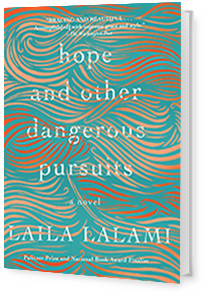The news was relegated to the bottom of Le Monde’s online page—fifteen Moroccan immigrants had drowned while crossing the Straits of Gibraltar on a fishing boat. They had left Tangier on a summer night, trying to navigate the short distance—only ten miles—that separates their homeland from Spain, and from the rest of Europe, where they hoped to make a new life for themselves. The boat was overloaded and ill equipped to handle the strong Mediterranean currents, and it capsized a couple of miles away from the coast. There were no survivors.
I read the article from my desk, in Los Angeles, where I was working as a computational linguist. By then, I had been living in America for eight years and I was always hungry for news about Morocco. I thought at first that the disaster was an isolated incident, a blip, a bizarre turn of events. Over time, however, the incidents seemed to multiply. Nearly every week in the summer of 2001 there was a report about arrests by the coast guards on either side of the Mediterranean.
Soon, there was even a slang term in Moroccan Arabic for these migrants—harragas, meaning ‘those who burn.’ Whether they were burning their papers, their lives, or their futures, I couldn’t tell. I wondered what could compel people to pay large sums of money in order to risk their lives for what would very likely be third-rate jobs. The articles never went beyond superficial details: this one had been unemployed for five years; that one had paid $4,000; this other one was on his third attempt.
I was immediately drawn to these immigrants’ stories, even though they were seemingly so different from my own. I had not had to struggle for a job in Morocco. After finishing my Master’s degree in linguistics, I had been offered two jobs teaching English at the university. I also had a staff position writing for Al-Bayane, a daily newspaper in Morocco. When I decided to pursue a doctorate in America rather than teach, I received my visa within a matter of hours, and the consular officer chatted pleasantly with me across the glass window that separated us.
And yet, there was something in the stories of the harragas that seemed completely familiar to me. Back home, I never had to look very hard or very far to find the kind of misfortune that drives people to desperate acts. A friend of mine had a science degree and several years of teaching experience, but her continued unemployment triggered a long-lasting depression. One of my cousins was unable to find a full-time job, and he and his girlfriend of four years couldn’t get married. Meanwhile, our neighbors’ son immigrated to France and came back every summer, his car stacked with gifts and gadgets. One of the grocery stores down the street from our house had been opened thanks to money sent from Holland by the owner’s son. Many people had begun to look at immigration as a magical solution.
As I started to research this subject, I learned about illegal immigration—what it represents, how it works, who benefits from it. The research, however, amounted to a lot of facts and figures; it didn’t tell me what I wanted to know. I had been writing fiction for many years, and I thought that the answers to my questions might lie in creating a story about a group of harragas. I set the action on a lifeboat, at sea, in the middle of the night. The characters grew over the course of several months. There was Murad, an unemployed young man who feels emasculated by his sister’s ability to provide for the family; Faten, a fanatically religious girl on the run from the law; Halima, a mother who takes her children with her on the boat; and Aziz, a mechanic who leaves his wife behind to try and find a job.
It would seem I have nothing in common with my characters, but I could just as easily have been one of them, if the lottery of life had dealt me different numbers—if I had been poor, if I had not found a job. Perhaps it’s not a coincidence that, like me, Murad has a degree in English, that he’s an avid reader. Or that Faten reminds me of some friends I had in college, who often asked me why I didn’t cover my hair. At the time, I’d shrugged off their comments, but Faten would not be so easily silenced. Maybe it’s not by chance that I started to write about a mother, Halima, just as I was about to become one; and that, like Aziz, I’ve had to contend with the displacement that is part of the immigrant’s life.
This was the gift of writing Hope and Other Dangerous Pursuits—spending time with my characters. Even after I’d finished my manuscript, they stayed with me. Sometimes, I can still hear them whisper in my ear.
